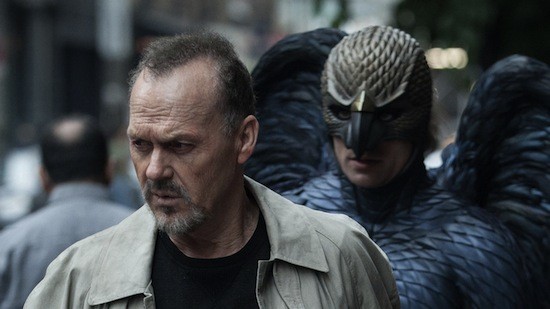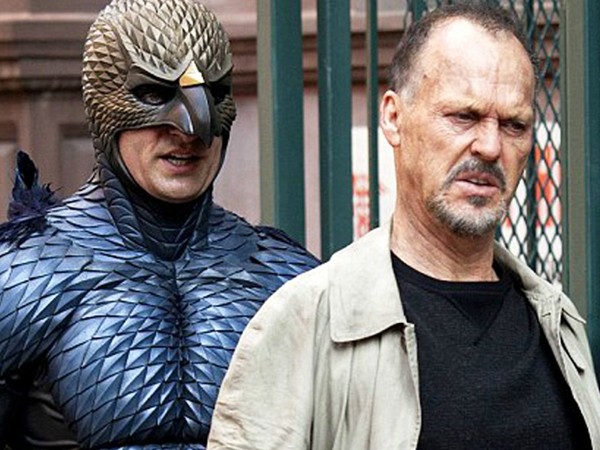The results of last night’s Academy Awards ceremony defy an easily articulated narrative, except to emphasize that 2014 was actually a great year for films. The acting categories went pretty much as expected, with J.K. Simmons and Patricia Arquette winning handily in the supporting roles, and Julianne Moore and Eddie Redmayne both landing lead role statues for portraying people with progressive, debilitating diseases. (For the record, Moore was brilliant in Still Alice, but Reese Witherspoon’s Wild was a better film in every way.)

Best Picture winner Birdman.
Among the Best Picture nominees, no one film ran away with the evening. Selma won only Best Original Song for “Glory”, allowing Common and John Legend to give one of the best speeches of the night. SImilarly, American Sniper won only for Sound Editing. There seemed to be a Grand Budapest Hotel wave forming early, as the Wes Anderson film cleaned up in the design and costuming categories, but the tide turned when Birdman beat GBH for Best Original Screenplay. I had expected a Best Director/Best Picture split, with Richard Linklater taking director honors for his masterpiece Boyhood and Alejandro González Iñárritu’s Birdman winning the big prize, but Birdman pitched a shutout in the top line categories. Truthfully, all of the Best Picture nominees were worthy, so the indie hero Linklater and Selma‘s director Ava DuVernay had the misfortune to drop great movies into a very tough field. At least Citizenfour was vindicated with a Best Documentary win, even if it did come at the cost of Finding Vivian Maier.
To me, it’s another, less closely watched category that shows the strength of filmmaking in 2014. After The Lego Movie‘s inexplicable non-nomination, Disney won both the Best Animated Feature with Big Hero Six and the Best Animated Short with “Feast”, the adorable dog movie to end all adorable dog movies.
Academy Awards Spread The Love
But when the Oscar Shorts categories was screened by On Location Film Festival earlier this year, there was a clear winner in the animated category, and that was the brilliantly inventive and surprisingly deep “A Single Life”.
A SINGLE LIFE – TRAILER from Job, Joris & Marieke on Vimeo.
Academy Awards Spread The Love (2)
I guess if you’ve got to lose, you might as well lose to a cute dog.
